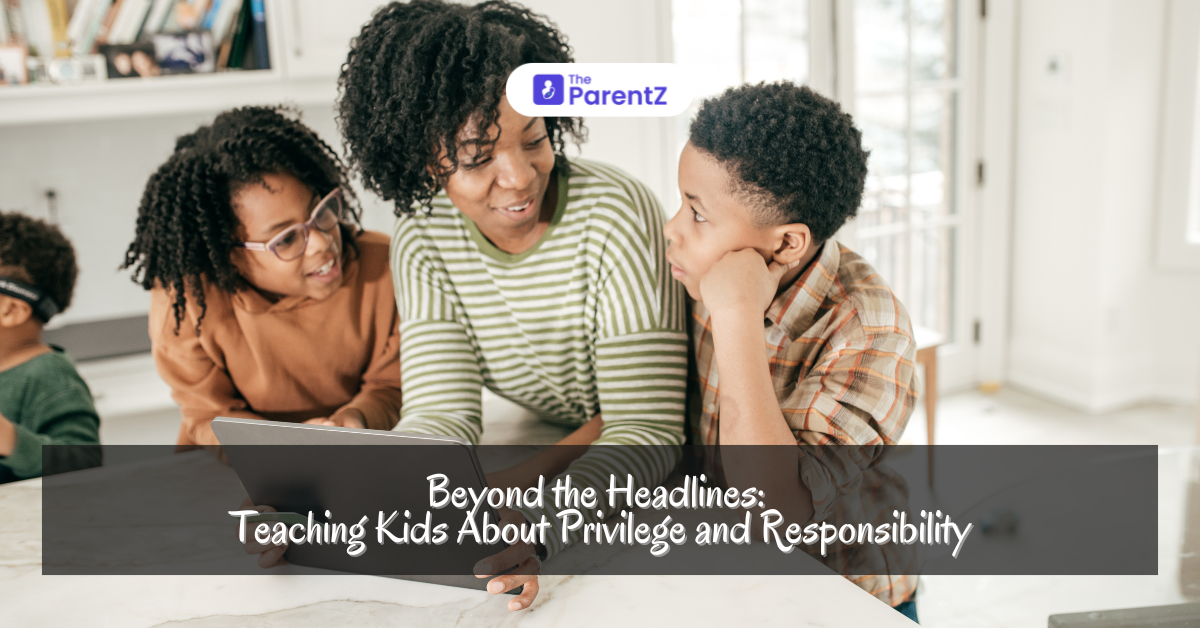The world our children live in is filled with carefully curated feeds. Everywhere we look, we see influencers flaunting wealth, traveling to exotic locales, and portraying a life of effortless happiness. Unfortunately, this carefully constructed reality is masking a world grappling with hunger, poverty, and political unrest.
Here’s the truth: amidst the filtered photos, your child may possess privilege unseen by others. We are saying this to breed guilt. Today, we are raising this topic to ignite a conversation about privilege and responsibility, two crucial ingredients for raising compassionate, responsible children.
Teaching Kids About Privilege and Responsibility
Understanding Privilege
Privilege isn’t just about fancy cars or lavish vacations. It’s about having access to necessities like clean water, quality education, and healthcare. Also, about growing up in a safe environment with a support system. It includes the unspoken advantages we may not even realize we have.
Opening the Dialogue
- Start Age-Appropriate Conversations: Begin with simple concepts. Talk about how some families don’t have enough food or a safe place to sleep. Use age-appropriate language and news stories to spark curiosity.
- Challenge Stereotypes: Discuss how appearances are often deceiving. Explain that the ‘perfect’ life they see online is just a slice, not the whole story.
Fostering Responsibility
Privilege comes hand-in-hand with responsibility. Here’s how to cultivate it:
- Gratitude Practice: Encourage your child to show gratitude for what they have, big or small. This could be a regular “thankful for” list or journaling.
- Volunteer Together: Find opportunities to volunteer in your community. Food banks, shelters, and animal shelters offer experiences that highlight the needs of others.
- Responsible Consumption: Discuss responsible spending. Encourage them to appreciate what they own and consider alternatives to mindless consumerism.
Addressing Difficult Truths
Talking about world issues like poverty and inequality can be overwhelming. Here’s how to guide the conversations:
- Be Age-Honest: Share information in a way they can understand. Use stories and age-appropriate videos to explain complex topics.
- Focus on Solutions: Show your child stories of people working to make a difference. Celebrate activists and everyday heroes who address these issues.
Remember, it’s a Journey, Not a Destination
Talking about privilege and responsibility is an ongoing process. Don’t get discouraged if your child doesn’t grasp everything right away. Keep the conversation open, answer questions honestly, and lead by example.
Conclusion
Social media paints a picture of a world that doesn’t exist. By fostering conversations about privilege and responsibility, we equip our children with the tools to navigate the real world. Let’s raise a generation that understands its own advantages and uses them to create a more just and equitable world.








Be the first one to comment on this story.